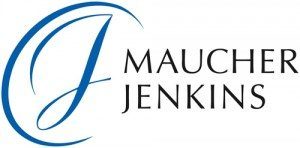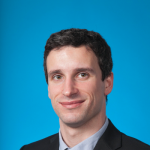It was mid-way through my physics degree at Oxford University that I first became aware of the patent attorney profession. As time went on, having attended open days and presentations by patent attorney firms, I became sure that this was the job for me. An unoriginal thought, I know, but I wanted to continue being involved with science, yet I couldn’t see myself working in academia. Becoming a patent attorney seemed the perfect solution.
I applied to several firms, but feel very fortunate to have secured a role as a trainee patent attorney at Maucher Jenkins. I have been working here for three months now, and haven’t looked back!
The interview process consisted of a single interview with the partner who now supervises most of my work. I was asked questions about my knowledge of the profession, my career ambitions as well as technical questions related to my degree. Following the interview, I was set some written exercises which tested my ability to explain in writing how particular devices and concepts worked. If I was to give any advice for the interview process, I don’t think I could do much better than to suggest reading this guide. I think you would be very hard pressed to find any recent entrant to the profession who hasn’t at least partially read it!
Having only been in the profession for a few months, there is still much to learn, but I have already had to get to grips with a large amount of patent law and to understand areas of technology that are completely new to me. From day one, I was given my own caseload to manage. At first this can be a little intimidating, but in the end I think it’s the only way to start to learn the ropes and if I need any help there’s always someone to offer me advice and support.
I work in Maucher Jenkins’s small office in Farnham, Surrey. Here, with the London head office easily accessible, we have a small, friendly team of people from a variety of different academic backgrounds. The location also offers me the flexibility to work in London for a day if there is a lecture at the Chartered Institute or I simply fancy a change of scenery.
The majority of my work is for foreign companies or attorneys (mainly from the USA) wanting to get a patent in Europe. These clients have usually already prepared an international Patent Cooperation Treaty (PCT) application and it’s my job to get it filed and prosecuted at the European Patent Office (EPO). This involves presenting arguments or making changes to the application to overcome any objections the examiner has made, all the while making sure our client is kept informed and our proposed course of action has met their approval. Deciding what changes to make to patent claims offers the biggest intellectual challenge in the job. Having to balance the need to address whatever objections the examiner has raised with the client’s desire for broad scope requires considerable skill, which I will continue to develop.
The aspect of the job that I enjoy the most is finding out about new and exciting pieces of technology. I particularly look forward to getting the “Oh, that’s how that works!” and “Isn’t that clever!” moments when reading through a new case. I have worked in a variety of different subject areas, from electronics and semiconductor devices to telecommunication and display technology. Each presents its own set of challenges but it is this that I find most rewarding. In the future, I hope to test myself further by turning my hand to the drafting of original patent applications.
For now, I am continuing to work on cases and slowly but surely increasing my knowledge of the intellectual property sector. At the end of the year, I am going to attend the Certificate of Intellectual Property Law course at Queen Mary, University of London where I hope to gain more knowledge of trade marks, copyright and designs, which I don’t come across on a day to day basis. The exemption the course provides in the foundation level qualification exams won’t be a bad thing either!
After Queen Mary, I will have to study for further UK and European qualification exams; a prospect I await with a little trepidation. Colleagues in the office, who have recently sat some of the papers, say that the exams are difficult and require a lot of work. I am sure that this is true and I don’t underestimate the difficulty of the challenge. However, I am reassured that the Maucher Jenkins partners are supportive and that they understand that passing every paper first time may not always be feasible. Because of this, I don’t feel so much pressure as to make me too stressed out by the whole procedure! With any luck I will pass the exams and I can look forward to a long and successful career doing something I really enjoy.







